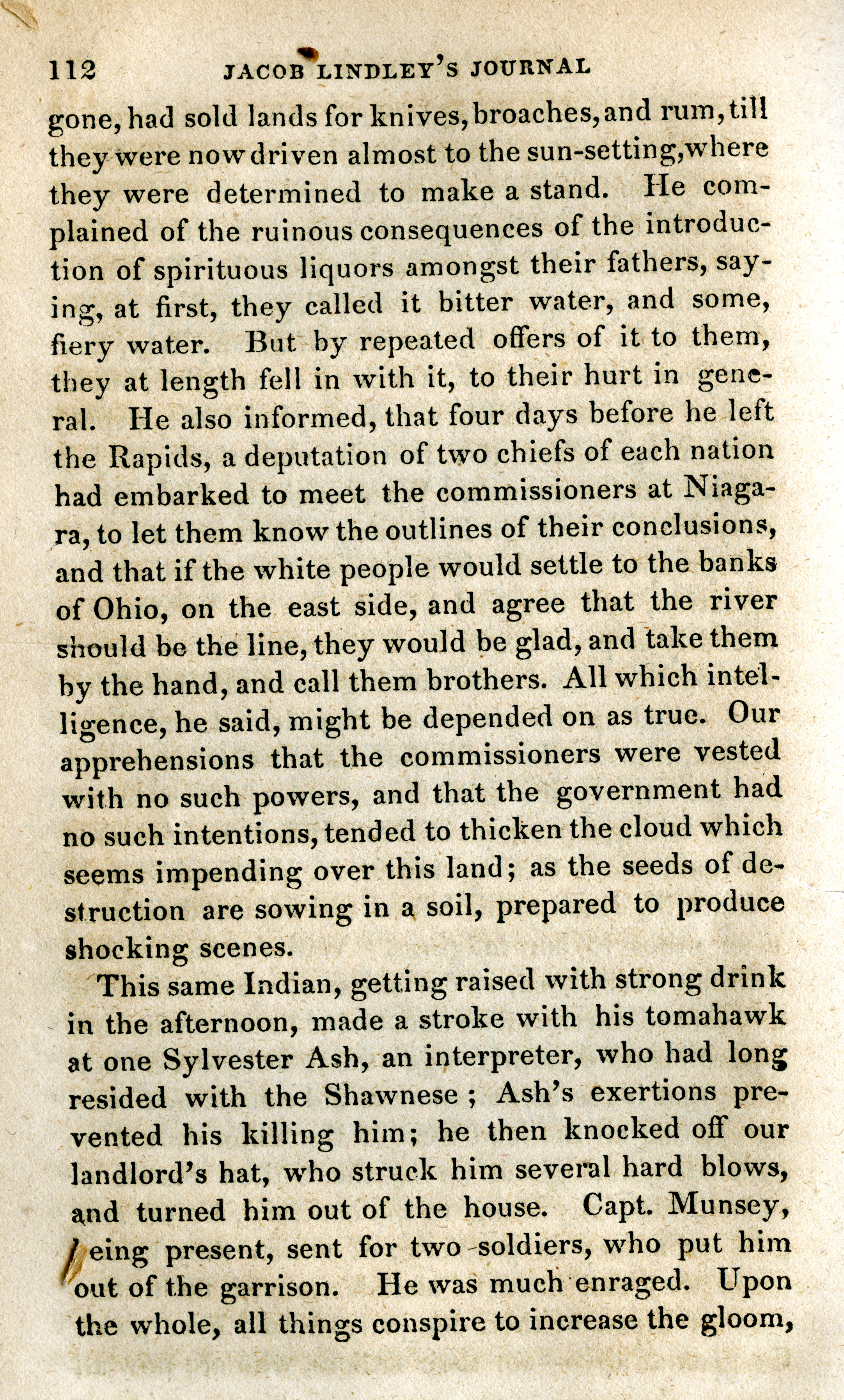gone, had sold lands for
knives, broaches, and rum, till
they were now driven almost to the
sun-setting, where
they were determined to make a stand. He com-
plained
of the ruinous consequences of the introduc-
tion of spirituous liquors
amongst their fathers, say-
ing, at first, they called it bitter water, and
some,
fiery water. But by repeated offers of it to them,
they at length
fell in with it, to their hurt in gene-
ral. He also informed, that four
days before he left
the Rapids, a
deputation of two chiefs of each nation
had embarked to meet the
commissioners at Niaga-
ra, to let them
know the outlines of their conclusions,
and that if the white people would
settle to the banks
of Ohio, on the east
side, and agree that the river
should be the line, they would be glad, and
take them
by the hand, and call them brothers. All which intel-
ligence,
he said, might be depended on as true. Our
apprehensions that the
commissioners were vested
with no such powers, and that the government
had
no such intentions, tended to thicken the cloud which
seems
impending over this land; as the seeds of de-
struction are sowing in a
soil, prepared to produce
shocking scenes.
This same Indian, getting raised with strong drink
in the afternoon, made a
stroke with his tomahawk
at one Sylvester
Ash, an interpreter, who had long
resided with the Shawnese; Ash’s exertions pre-
vented his killing him; he
then knocked off our
landlord's hat, who struck him several hard
blows,
and turned him out of the house. Capt.
Munsey,
being present, sent for two soldiers, who put
him
out of the garrison. He was much enraged. Upon
the whole, all things
conspire to increase the gloom,

